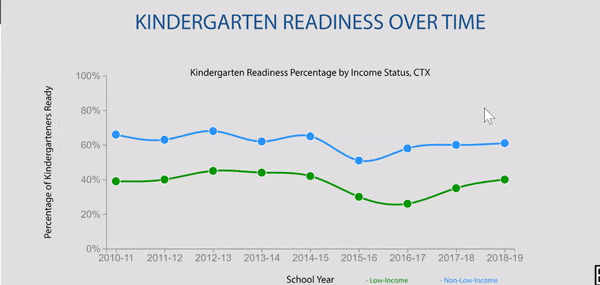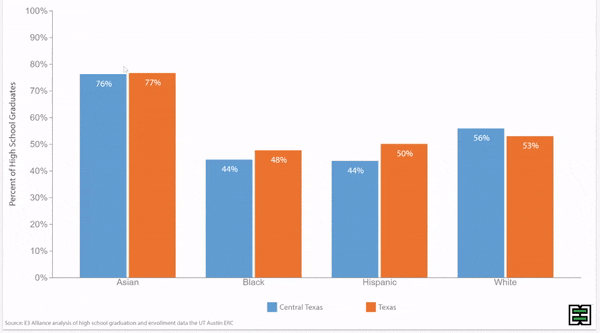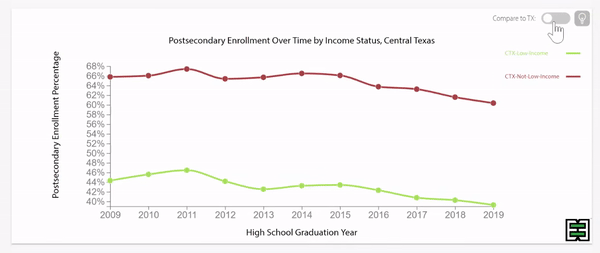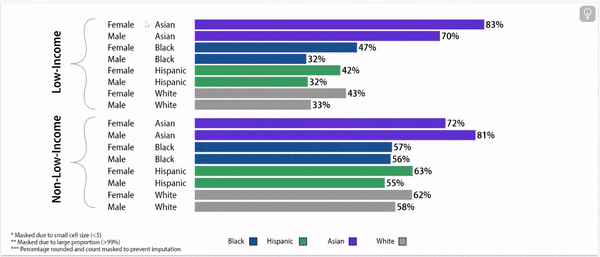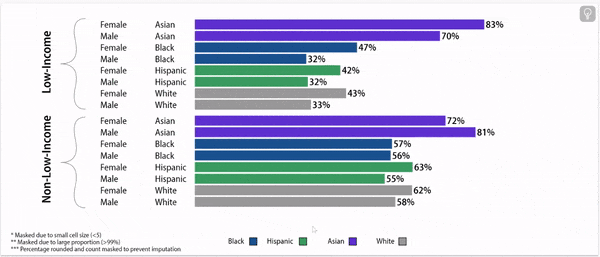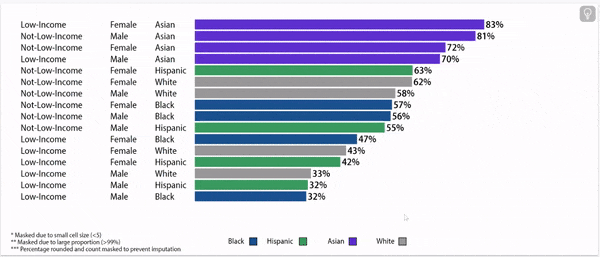Discipline Profile
Disciplinary referral rates reflect the number of students that received one or more referrals that resulted in removal from a classroom.
In the data analyses below, we examine referrals that remove a student from the classroom, such as in-school or out-of-school suspension, expulsion, or placement in a Disciplinary Alternative Education Program (DAEP)/Juvenile Justice Alternative Education Program (JJAEP).
Jump to: Source and cohort information about this data.
2023-24
8%
30,492 / 402,718
Central Texas
Disciplinary Referral Rate
2023-24
10%
47,985 / 488,717
San Antonio
Disciplinary Referral Rate
Disciplinary referral rates in Texas decreased in 2021, but then increased back to pre-pandemic levels.
Disparities exist in disciplinary referral rates when comparing across household income status in Texas.
Disparities in disciplinary referral rates by household income status decreased in 2021, but then increased back to pre-pandemic levels in Texas.
Disciplinary referral rates vary by race/ethnicity in Texas.
Disparities in disciplinary referral rates by race/ethnicity decreased in 2021, but then increased back to pre-pandemic levels in Texas.
Digging deeper: disciplinary referral rates vary by gender, household income, and race/ethnicity.
Disciplinary Referral Rates, 2024
About this data:
E3 Alliance relies primarily on data from the University of Texas Education Research Center (ERC). This data allows for a year-by-year understanding of disciplinary referrals based on where a student attends school. This data pertains to Pre-K through 12th grade students who were enrolled within the state of Texas during a given school year.
Following are items to note:
There is a delay in data availability due to state approval within the ERC and analysis time. As such, if you choose to explore data from Central Texas, the graphs above present disciplinary referral data in the most recent available year in Texas schools.
Outcomes that reference data from 2021, 2022, or 2023 do not include San Marcos CISD, due to a data discrepancy.

